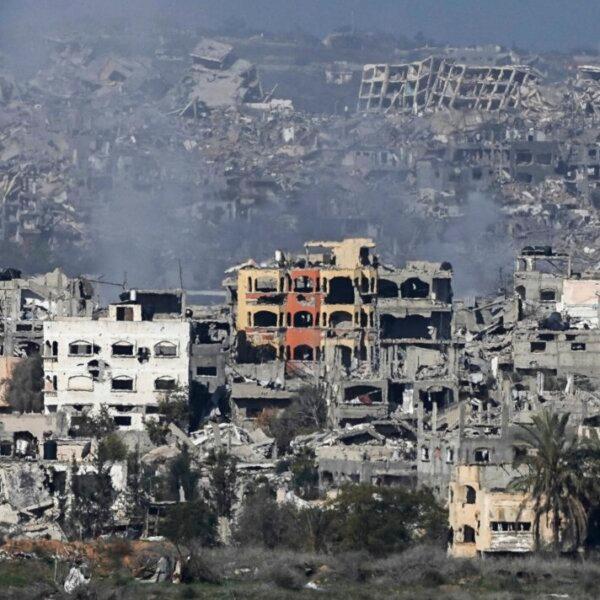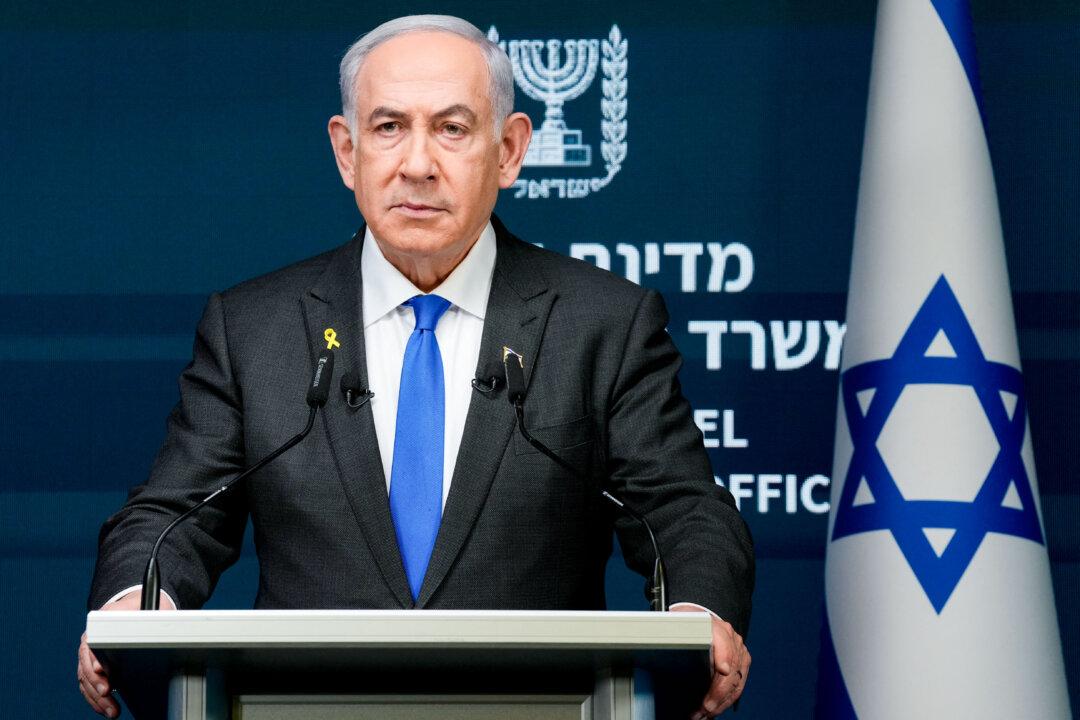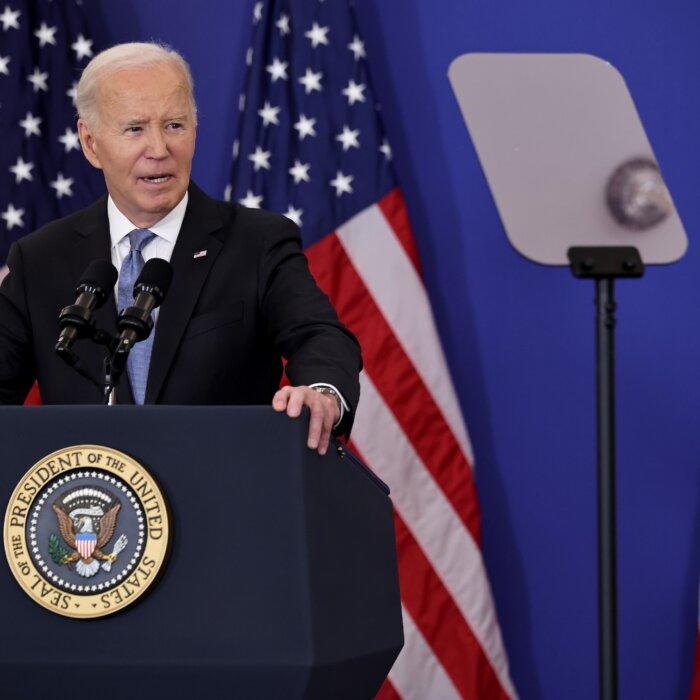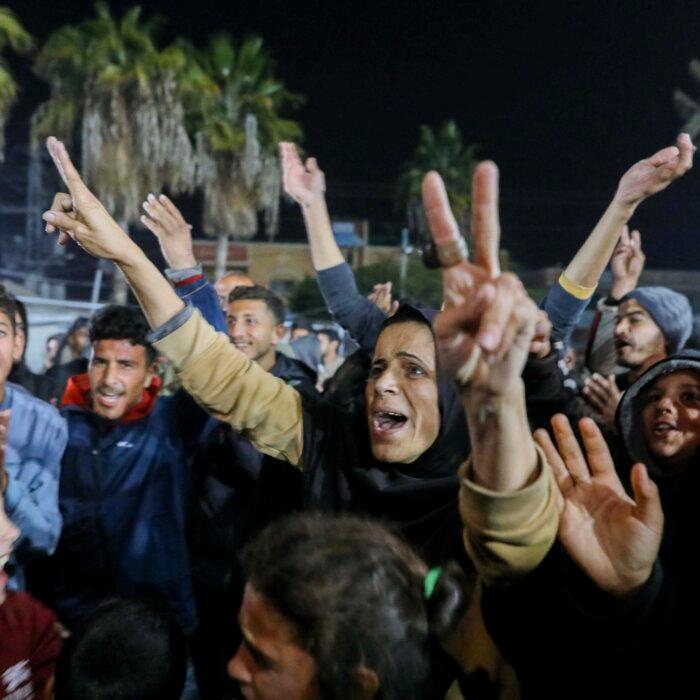Israeli Prime Minister Benjamin Netanyahu’s office has accused Hamas of reneging on parts of the Gaza cease-fire agreement in a bid “to extort last-minute concessions.”
Netanyahu said the Israeli Cabinet—which had been scheduled to meet on the morning of Jan. 16 to ratify the deal—would not meet until Hamas backed down, and his office described it as a “last-minute crisis.”
A statement from Netanyahu’s office, emailed to The Epoch Times, said: “Hamas reneges on parts of the agreement reached with the mediators and Israel in an effort to extort last-minute concessions. The Israeli cabinet will not convene until the mediators notify Israel that Hamas has accepted all elements of the agreement.”
However, Hamas leader Sami Abu Zuhri told the Saudi-owned Al Arabiya TV that Netanyahu’s claims were unfounded and urged the Biden and Trump administrations to “oblige” the Israelis to implement the agreement.
Netanyahu spokesman David Mencer said at a news briefing on Jan. 16, “Last night the prime minister strongly insisted that Hamas fold their last-minute demand to change the deployment of IDF forces in the Philadelphi corridor, which is so important, so crucial to stop weapon smuggling to Hamas.”
He said the Israeli delegation would remain in Doha, Qatar, waiting for the agreement to be finalized.
Mencer said: “To be clear the government of Israel wants to finalize an agreement. We want to bring our people home and we hope the details will be finalized.”
He claimed that Hamas had been decimated and its leadership eliminated.
“Hamas is not just Israel’s enemy, it is also the enemy of the Gazan people. They have used ordinary Gazans as human shields, deliberately maximizing civilian casualties to fuel their own propaganda,” Mencer said, adding that Israel was “liberating Gaza from Hamas’s tyranny.”
Late on Jan. 15, U.S. officials and the Qatari prime minister said that Hamas’s and Israel’s negotiators had agreed to a three-phase cease-fire deal, which would include the release of the remaining 100 hostages in exchange for the freeing of Palestinian prisoners.
The first phase, a six-week cease-fire, was scheduled to come into place on Jan. 19 and would allow relief aid into the beleaguered Gaza Strip.
Over the following six weeks, 33 hostages would be released after 15 months in captivity.
Last-Minute Hitch
Early on Jan. 16, however, Netanyahu’s office issued a statement accusing Hamas of backtracking on an earlier agreement that would have given Israel a veto over the release of certain convicted murderers.Israel is anxious not to repeat the mistake that it made in 2011 when it released 1,100 Palestinians including Yahya Sinwar—who would later mastermind the Oct. 7, 2023 attacks—in exchange for a single captured Israeli soldier, Gilad Shalit.
The outline for the cease-fire deal called for a complete cessation of hostilities and Israeli troops’ eventual complete withdrawal from the Gaza Strip, but only after all 100 hostages were handed over.
It is unclear how many of the hostages, who include IDF soldiers, are still alive.
But the first part of the deal, the cease-fire, now appears to be in question. It is unclear if other issues have been raised by Hamas, but the ball appears to be back in its court.
Earlier in a nationally televised speech, Israeli President Isaac Herzog called on Netanyahu’s government to approve the cease-fire.
Hamas said the cease-fire deal was “the result of the legendary resilience of our great Palestinian people and our valiant resistance in the Gaza Strip.”
Negotiations Held in Qatar
The outline of the deal was reached after weeks of negotiations in Doha, capital of the oil-rich Gulf state of Qatar.U.S. President Joe Biden praised “dogged and painstaking American diplomacy” and said his administration and U.S. President-elect Donald Trump’s team had been “speaking as one” in the most recent negotiations.
Meanwhile, Israeli strikes across the Gaza Strip have killed at least 48 people over the past day. In previous conflicts, both sides have stepped up military operations in the final hours before cease-fires go into effect as a way to project strength.
According to the Hamas-controlled Gaza Health Ministry, 46,000 people have died in the Gaza Strip since the conflict began in October 2023, including 48 people who died on Jan. 15.
The conflict began on Oct. 7, 2023, when Hamas terrorists crossed the border into Israel in vehicles and paragliders and attacked civilians and military outposts.
Among those targeted were people living in kibbutzim in southern Israel and a number of young people attending a music festival in the desert.
About 1,200 Israelis were killed and another 250 were taken hostage and brought back to the Gaza Strip, where they were held captive in tunnels.

“They will write in books that one day, a Zionist group committed the most heinous crimes, killing thousands of women and children, and in the end they were defeated.”







